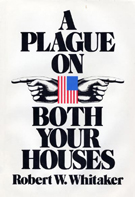Archive for July 18th, 2010
1780
Posted by Bob in Coaching Session on 07/18/2010
I drove my doctor brother on some of his trips some years back. He was working a geriatrics unit in the mountains. Two terminally old women in wheelchairs were navigating down the hall straight at each other in a narrow hall.
They looked each other straight in the eye and played chicken.. Each refused to pull to the side. They collided.
Neither had backed down in life and neither was changing their style at the end. They were pre-Slave Generation country women. We laughed, but it was a laugh of admiration.
There are no more grandmas on the porch with a shotgun waiting for them to try to tear down her house. We were all proud of her, She was a part of Americana, stirring something deep in OUR roots.
Hers was the blood that took the land. Hers was the blood that defied Indian attacks and whipped the British at King’s Mountain. The Watauga settlers in East Tennessee had settled on land the King had set aside for the Indians after the British had won the land from the Mississippi to the Appalachians in the French and Indian War.
Watauga simply and officially signed a declaration of independence from His Majesty’s Government years before the Declaration signed in 1776. If it had happened in New England, everybody would know about it.
Watauga had nothing to do with the War of Independence or anything else that happened to their East. But in 1780, Colonel Ferguson decided he would take care of that bunch of rebels while he was marching into the upper part of South Carolina after the fall of Charleston.
Ferguson sent a message to the Watauga settlement that they had better not interfere with him or he would cross the mountains and destroy them. The Wataugans, like those old grandmas, met him with their guns and destroyed his army at King’s Mountain.
His threat had been his suicide note.
It says something about our “nation of immigrants” that the only person in almost four thousand men engaged in that battle who was not born in America was Ferguson himself. He was leading Tories.
That’s several historical distortions shown up in one example.
King’s Mountain is the only battle discussed in classroom history, except Yorktown, that happened south of the Mason-Dixon Line.
They can’t avoid mentioning Yorktown, since the real war ended there. But why King’s Mountain? Because it was a victory that was praised throughout America. It occurred when, as we are constantly told, “The Revolutionary cause was at its lowest point in 1780.”
I was always confused when they talked about how the American cause seemed lost in 1780. All I had been taught about history gave not the slightest indication of any special problem then.
By 1780 we had several European allies. The war had been won at Saratoga in 1778 when France came onto the American side after the British army there was destroyed. The war had begun in New England.
The entire history I had been taught in the years between 1775 and 1781 was about Washington fighting in New York, Philadelphia and New Jersey when he crossed the river against the Hessians.
The only thing accepted history said about anything that happened south of Pennsylvania was the final surrender at Yorktown, Virginia.
Valley Forge in PA was the only low time I knew about.
I had never been taught anything about WHY everybody was so depressed in 1780.
Even in South Carolina.
The worst defeat ever suffered by America in the Revolution was the loss of Charleston in 1780. Everything Americans couldn’t afford was lost there. The entire Continental Army that was there was taken.
But I had never even read that there WAS a war in the South. I certainly knew nothing of the giant Continental army and naval forces that were there.
But to discuss the Charleston defeat opens a can of worms for historians. One would have to realize that while New York and Philadelphia had fallen, Charleston had defended itself.
The idea that a shot was fired south of Philadelphia is unmentionable.
They do mention how King’s Mountain came as a relief in a period of collapse in 1780. But they don’t talk about anything else down here.
Cornwallis’s army tried for a year to get from Charleston and take over South Carolina. It is astonishing that Mel Gibson made a movie about this otherwise totally forgotten part of the Revolution. I don’t think he did that by accident.
One’s impression is that the war began and was fought entirely north of Maryland. Then all of a sudden Washington and the French flew down to Yorktown, at the southern end of Virginia and took Cornwallis’ surrender.
The army they defeated had been badly beaten up by guerrilla warfare in SC.




Recent Comments